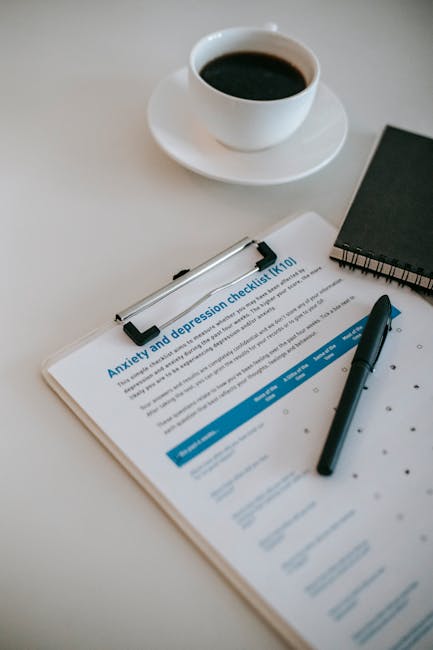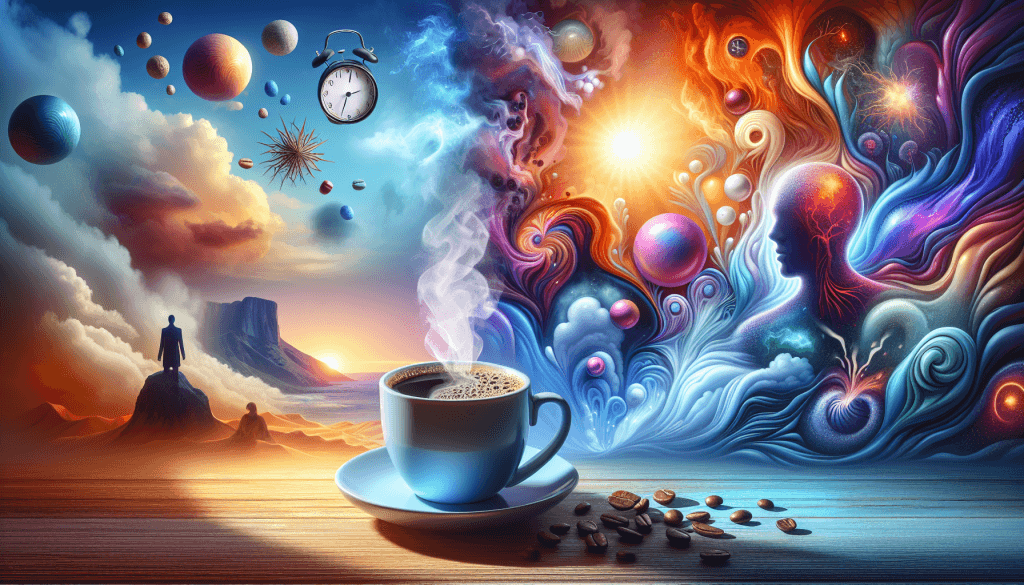Caffeine, a beloved stimulant found in coffee, tea, and energy drinks, is known for its ability to boost alertness and energy. However, its impact on anxiety and stress levels is a topic of growing interest and concern. Understanding how caffeine affects mental health can help individuals make informed choices about their consumption habits.
Key Takeaways
- Caffeine is a widely consumed stimulant with both positive and negative effects on the body.
- It can exacerbate anxiety symptoms in some individuals.
- Caffeine’s impact on stress levels varies based on consumption patterns and individual sensitivity.
- Specific populations, like university students, may experience unique challenges with caffeine intake.
- Understanding caffeine’s neurocognitive effects can inform mental health strategies.
Introduction to Caffeine and Its Effects
Overview of Caffeine
Caffeine is a natural stimulant that affects the central nervous system. It is the world’s most widely consumed psychoactive substance, found in over 60 plant species. Its primary function is to block adenosine, a neurotransmitter that promotes sleep, thereby increasing alertness and reducing fatigue.
Common Sources of Caffeine
Caffeine is present in various beverages and foods. Coffee, tea, and energy drinks are the most common sources. Chocolate and certain medications also contain caffeine. The amount of caffeine in these products can vary significantly, influencing its effects on the body.
General Effects on the Body
Caffeine increases heart rate, enhances mood, and improves cognitive function. However, excessive consumption can lead to negative effects such as insomnia, jitteriness, and increased heart rate. Understanding these effects is crucial for managing caffeine intake.

Caffeine and Anxiety
Mechanisms of Caffeine-Induced Anxiety
Caffeine can trigger anxiety by stimulating the central nervous system. It increases the production of stress hormones like cortisol and adrenaline, which can lead to heightened anxiety symptoms. Individuals with anxiety disorders may be more sensitive to these effects.
Meta-Analysis of Caffeine Intake and Anxiety
Search Strategy
Researchers have conducted numerous studies to explore the relationship between caffeine and anxiety. A meta-analysis involves systematically reviewing these studies to draw comprehensive conclusions.
Literature Inclusion and Exclusion Criteria
Studies included in the meta-analysis typically focus on adult populations and measure anxiety symptoms following caffeine consumption. Exclusion criteria often involve studies with confounding variables or those lacking rigorous methodology.
Results of Meta-Analysis
The meta-analysis reveals that caffeine can exacerbate anxiety symptoms, particularly in individuals with pre-existing anxiety disorders. However, the degree of impact varies based on individual sensitivity and consumption levels.
Case Studies and Observations
Case studies provide valuable insights into how caffeine affects anxiety on an individual level. Observations suggest that reducing caffeine intake can alleviate anxiety symptoms in some individuals, highlighting the importance of personalized consumption strategies.

Caffeine and Stress Levels
Physiological Impact of Caffeine on Stress
Caffeine influences stress levels by affecting the body’s stress response system. It can increase cortisol production, leading to heightened stress levels. However, moderate caffeine consumption may have a stress-reducing effect for some individuals.
Cross-Sectional Study in University Students
Study Design and Methodology
A cross-sectional study involving university students examined the relationship between caffeine consumption and stress levels. Participants reported their caffeine intake and stress levels through surveys and questionnaires.
Analysis of Overall Effects
The study found that high caffeine consumption was associated with increased stress levels. However, moderate consumption did not significantly impact stress, suggesting that individual tolerance plays a role.
Habitual Caffeine Consumption and Stress
Habitual caffeine consumption can lead to tolerance, reducing its impact on stress levels over time. However, sudden increases in consumption can trigger stress responses, emphasizing the importance of consistent intake patterns.

Caffeine, Anxiety, and Depression in Specific Populations
University Students in Medina
Study Findings
A study conducted among university students in Medina explored the relationship between caffeine consumption and mental health. The findings indicated a correlation between high caffeine intake and increased anxiety and depression symptoms.
Implications for Student Health
These findings highlight the need for awareness and education about caffeine consumption among students. Encouraging balanced intake can promote better mental health and academic performance.
Medical Students and Sleep Quality
Relationship with Anxiety and Stress
Medical students often experience high levels of stress and anxiety, which can be exacerbated by caffeine consumption. The stimulant’s impact on sleep quality further contributes to these challenges.
Impact on Academic Performance
Poor sleep quality, influenced by caffeine, can negatively affect academic performance. Students may benefit from managing their caffeine intake to improve sleep and reduce anxiety.

Neurocognitive Effects of Caffeine
Reorganization of Brain Functional Connectivity
Caffeine can alter brain connectivity, enhancing cognitive function and alertness. These changes can improve focus and concentration, but excessive consumption may lead to overstimulation.
Enhancement of Neurocognitive Function
Moderate caffeine consumption has been linked to improved memory and cognitive performance. However, the benefits are dose-dependent, with excessive intake potentially impairing cognitive function.
Long-term Implications for Mental Health
Long-term caffeine consumption may have both positive and negative implications for mental health. While it can enhance cognitive function, it may also contribute to anxiety and stress if consumed excessively.
Conclusion
Summary of Findings
Caffeine has a complex relationship with anxiety and stress levels. While it can enhance alertness and cognitive function, excessive consumption may exacerbate anxiety and stress symptoms.
Recommendations for Caffeine Consumption
Individuals should monitor their caffeine intake and consider their sensitivity to its effects. Reducing consumption may benefit those experiencing anxiety or stress. Exploring alternative stress-relief methods, such as aromatherapy, can also be beneficial.
Areas for Future Research
Further research is needed to explore the long-term effects of caffeine on mental health. Studies focusing on specific populations, such as students and individuals with anxiety disorders, can provide valuable insights.
Understanding the impact of caffeine on anxiety and stress levels can empower individuals to make informed choices about their consumption habits. By balancing caffeine intake and exploring alternative stress-relief methods, individuals can promote better mental health and well-being.
Unraveling the Buzz: FAQ on The Impact Of Caffeine On Anxiety And Stress Levels
How does caffeine affect anxiety levels?
Caffeine is a stimulant that can increase alertness and energy levels. However, it can also heighten anxiety symptoms in some individuals by increasing heart rate and triggering the release of stress hormones. This can lead to feelings of nervousness or jitteriness, especially in those who are sensitive to caffeine.
Can caffeine consumption lead to increased stress?
Yes, caffeine can contribute to increased stress levels. It stimulates the central nervous system, which can lead to heightened stress responses. For some people, this means feeling more on edge or experiencing a sense of urgency and tension, particularly if consumed in large amounts.
Is there a safe amount of caffeine for people with anxiety?
The safe amount of caffeine varies from person to person, particularly for those with anxiety. Generally, moderate consumption, which is about 200-400 mg per day (roughly 2-4 cups of coffee), is considered safe for most people. However, individuals with anxiety disorders may need to consume less to avoid exacerbating their symptoms.
Does caffeine affect everyone’s anxiety levels the same way?
No, caffeine does not affect everyone’s anxiety levels in the same way. Sensitivity to caffeine can vary widely among individuals. Some people may experience increased anxiety even with small amounts, while others may not notice any significant effects.
Can caffeine withdrawal cause anxiety?
Yes, caffeine withdrawal can lead to anxiety symptoms. When someone who regularly consumes caffeine suddenly stops, they may experience withdrawal symptoms such as headaches, irritability, and increased anxiety. These symptoms typically subside within a few days as the body adjusts.
Are there any benefits of caffeine for stress management?
Caffeine can have some benefits for stress management, such as improving focus and concentration, which might help manage stress in the short term. However, these benefits are often outweighed by the potential for increased anxiety and stress, especially if consumed in excess.
How can I tell if caffeine is affecting my anxiety levels?
To determine if caffeine is affecting your anxiety levels, pay attention to how you feel after consuming it. If you notice increased heart rate, nervousness, or jitteriness, it may be contributing to your anxiety. Keeping a journal of your caffeine intake and symptoms can help identify patterns.
What alternatives to caffeine can help reduce anxiety and stress?
There are several alternatives to caffeine that may help reduce anxiety and stress, such as herbal teas like chamomile or peppermint, which have calming effects. Additionally, practices like mindfulness, regular exercise, and ensuring adequate sleep can also help manage anxiety and stress levels.
Is decaffeinated coffee a good option for those with anxiety?
Decaffeinated coffee can be a good option for those with anxiety who enjoy the taste of coffee but want to avoid the stimulating effects of caffeine. While it contains a small amount of caffeine, it is significantly less than regular coffee, making it a safer choice for those sensitive to caffeine.
How long does caffeine stay in the body, potentially affecting anxiety?
Caffeine has a half-life of about 3 to 5 hours, meaning it can stay in the body for several hours after consumption. Its effects can vary based on individual metabolism, but it can potentially affect anxiety levels for up to 6 hours or more after intake.



